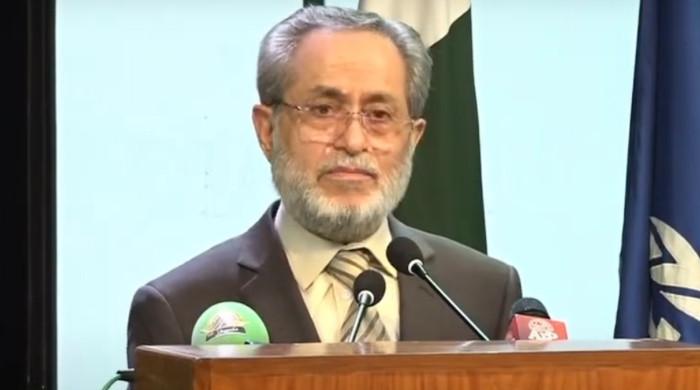Justice Mandokhail Highlights Constitutional Rights at Labour Conference
ISLAMABAD: Justice Jamal Khan Mandokhail of the Supreme Court remarked on Wednesday that divine power is the ultimate source of justice, with judges rendering verdicts based on presented evidence.
Addressing a national conference in Islamabad centered on “Workers and Employers in 2025: Navigating Change with Harmony,” Justice Mandokhail emphasized the constitutional guarantee of equal rights for all, prohibiting forced labor.
“We have pledged to safeguard the rights of every citizen, as outlined in the Constitution,” he stated.
The National Industrial Relations Commission (NIRC), in collaboration with the International Labour Organisation (ILO) Pakistan, hosted the event to commemorate International Labour Day on Thursday.
Reflecting on judicial duties, the justice questioned, “Are we truly doing justice to our roles? Am I effectively serving as a judge? The titles of labourer and judge are not personal achievements.”
Justice Mandokhail mentioned his decision to deviate from a prepared statement, opting to speak candidly and in accordance with the Constitution. “It’s often said that judges write, not speak, but today, I wish to speak openly,” he added.
Expressing concern over fulfilling his oath, he sought divine guidance. “Justice rests with Allah. We only decide cases based on the presented evidence. A party might assert a right, but our rulings are confined to the submitted materials.”
Emphasizing the plight of workers in his native province, particularly in the mining sector, Justice Mandokhail advocated for stronger labor protection laws, asserting that “no worker should be treated as a slave.”
He voiced deep concerns about the lack of institutional protection for mine workers and urged legal and administrative reforms to ensure their safety and well-being.
He further added that judges must deliver judgments without succumbing to pressure, fear, or greed. “I assure you, on behalf of my fellow judges and myself, that we are committed to upholding justice and protecting constitutional rights.”
“While judges must adhere to the law, justice extends beyond the courtroom. Every individual is responsible for ensuring justice in their actions,” he noted.
Justice Jawad Hassan of the Lahore High Court commended Pakistan’s robust legislative framework for labour rights, highlighting the country’s history of progressive labour laws, starting with the Industrial Relations Ordinance of 1969. “Pakistan is a signatory to almost all 48 international treaties concerning labour rights,” he added.
NIRC Chairman Shaukat Aziz Siddiqui, also speaking at the event, reaffirmed the commission’s dedication to protecting workers’ rights. He stated that the NIRC is focused on sustaining industrial operations while safeguarding labourers’ livelihoods.
Siddiqui, who assumed his position in December 2024, emphasized his commitment to fostering collaboration between workers and employers. “We organized this conference to provide a platform for discussion. I am delighted to see workers and employers together at this event.”



Comments (0)
No comments yet. Be the first to comment!
Leave a Comment